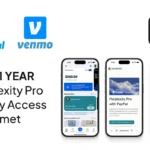Now Reading: 10 Best AI Tools for Podcast Editing and Production to Try Now
-
01
10 Best AI Tools for Podcast Editing and Production to Try Now
10 Best AI Tools for Podcast Editing and Production to Try Now

Picture this: You’ve just recorded an hour-long interview for your podcast. The content is gold, but there are awkward pauses, background noise, and about 50 “umms” scattered throughout. A few years ago, cleaning this up would have meant hours hunched over editing software. Today? The best AI tools for podcast editing and production can fix these issues in minutes, sometimes with just a single click. I’ve spent countless hours testing these tools so you don’t have to, and I’m excited to share what I’ve found.
Descript
Descript has completely changed how I approach podcast editing. Instead of manipulating waveforms, I edit audio by editing text-just like a document. It’s mind-blowing how intuitive this makes the entire process.
Key Features:
- Text-based audio editing: Edit your podcast by editing the transcript
- Overdub: Create a realistic AI voice clone for making corrections
- Studio Sound: One-click audio enhancement
- Filler word removal: Automatically detect and remove “ums,” “ahs,” and other filler words
- Transcription: Highly accurate automatic transcription
- Collaboration: Real-time collaboration with team members
Pricing:
- Free: Limited to 3 hours of transcription
- Creator: $15/month per user
- Pro: $30/month per user
- Enterprise: Custom pricing
Pros:
- Incredibly intuitive interface
- Saves hours of editing time
- Excellent transcription accuracy
- Seamless collaboration features
- Regular updates with new AI features
Cons:
- Can be resource-intensive on older computers
- Advanced features have a learning curve
- Some users report occasional crashes with large projects
Best For:
Podcasters who hate traditional audio editing or work with interview-heavy formats. The text-based editing approach makes it incredibly easy to remove mistakes, tighten conversations, and produce professional-sounding episodes without technical expertise.
I’ve personally cut my editing time by about 65% since switching to Descript. Being able to edit by simply deleting text feels like magic compared to the old way of zooming in on waveforms and making precise cuts.
Adobe Podcast
Adobe Podcast (formerly Project Shasta) is Adobe’s AI-powered audio recording and enhancement platform. It’s still technically in beta, but don’t let that fool you-this tool packs some serious power.
Key Features:
- Enhance Speech: Dramatically improves audio quality with one click
- Background noise removal: Clean up recordings instantly
- AI mic check: Optimize your microphone setup
- Text-based editing: Edit audio by editing the transcript
- Studio-quality sound: Make any microphone sound professional
Pricing:
- Free: Currently in beta
- Adobe Creative Cloud: $35.99/month (includes Adobe Podcast)
Pros:
- Exceptional audio enhancement capabilities
- Extremely user-friendly interface
- Works with any microphone
- Seamless integration with other Adobe products
- Zero learning curve
Cons:
- Still in beta, so some features may be unstable
- Limited advanced editing features compared to dedicated DAWs
- Requires internet connection for processing
Best For:
Beginners or podcasters recording in less-than-ideal environments. If you don’t have professional recording equipment or a sound-treated space, Adobe Podcast can make your audio sound surprisingly professional with minimal effort.
The Enhance Speech feature is almost magical-I’ve used it to salvage interviews recorded on phone calls or in noisy environments that would have been unusable otherwise.
Useful Articles:
Podcastle
Podcastle is an all-in-one platform for recording, editing, and enhancing podcasts directly in your browser. Its AI-powered features make it particularly appealing for creators who want simplicity without sacrificing quality.
Key Features:
- AI noise removal: One-click background noise elimination
- Filler word removal: Automatically remove “ums,” “ahs,” and other filler words
- Revoice: Clone your voice for text-to-speech content
- Transcription: Automatic audio transcription
- Remote recording: High-quality remote interviews
- Text-to-podcast: Convert written content into audio
Pricing:
- Basic: Free with limited features
- Storyteller: $11.99/month per creator
- Pro: $23.99/month per creator
Pros:
- User-friendly browser-based interface
- Excellent remote recording capabilities
- High-quality AI voice cloning
- Free podcast hosting included
- Great for beginners
Cons:
- Some users report bugs and technical issues
- Customer support can be slow to respond
- Limited advanced editing features
Best For:
Podcasters who want an all-in-one solution without installing software. Podcastle’s browser-based approach makes it accessible from any computer, and its intuitive interface is perfect for those who don’t want to learn complex editing tools.
I particularly love Podcastle’s remote recording feature-it captures separate tracks for each speaker in surprisingly high quality, making editing conversations much easier.
Cleanvoice
Cleanvoice focuses on one thing and does it extremely well: automatically removing filler words, mouth sounds, and awkward silences from your podcast recordings.
Key Features:
- Filler word removal: Automatically detect and remove “ums,” “ahs,” and similar sounds
- Silence removal: Intelligently remove awkward pauses
- Mouth sound elimination: Remove lip smacks, heavy breathing, and other distracting noises
- Timeline exports: Compatible with popular editing software
- Marker exports: Seamless workflow integration
Pricing:
- Subscription: $11/month for 10 hours, $30/month for 30 hours, $90/month for 100 hours
- Pay-as-you-go: $11 for 5 hours, $20 for 10 hours, $45 for 30 hours
- Free trial available
Pros:
- Extremely effective at cleaning up audio
- User-friendly interface
- No software to download (SaaS)
- Can improve podcast SEO through cleaner transcripts
- Saves hours of manual editing
Cons:
- Some features still in beta
- Limited to specific cleaning functions (not a full editing suite)
- Processing can take time for longer episodes
Best For:
Podcasters who already have a preferred editing workflow but want to automate the tedious cleanup process. Cleanvoice integrates well with other tools, making it a perfect addition to an existing production pipeline.
I was skeptical about how well it would detect filler words in my particular speaking style, but I was impressed-it caught about 95% of my “umms” and awkward pauses without removing any actual content.
Useful Articles:
Otter.ai
Otter.ai is primarily known as a transcription service, but its AI capabilities make it a powerful tool in the podcast production workflow, especially for content repurposing.
Key Features:
- Live transcription: Real-time transcription during recording
- Speaker identification: Automatically distinguishes between different speakers
- Searchable transcripts: Easily find specific moments in your audio
- Collaborative editing: Team members can edit transcripts together
- Custom vocabulary: Train the AI to recognize industry-specific terms
- Audio recording: Record directly in the platform
Pricing:
- Free: 300 minutes per month
- Pro: $16.99/month (1,200 minutes)
- Business: $30/month per user (6,000 minutes)
- Enterprise: Custom pricing
Pros:
- Exceptional transcription accuracy
- Real-time collaboration features
- Excellent for content repurposing
- Multilingual support
- Mobile app available
Cons:
- Not a dedicated podcast editing tool
- Limited audio enhancement features
- Can be expensive for high-volume users
Best For:
Podcasters who repurpose their content into blog posts, social media clips, or other text-based formats. Otter’s accurate transcriptions and collaborative features make it easy to transform audio content into written material.
I use Otter for every interview I conduct-having a searchable transcript makes it incredibly easy to find key moments for clips and highlights without re-listening to the entire recording.
Wondercraft AI
Wondercraft AI stands out as a specialized tool for creating AI-generated podcasts with lifelike voices and customizable elements.
Key Features:
- Lifelike AI voices: Natural-sounding voice generation
- Customizable voice settings: Adjust pitch, tone, and speed
- Royalty-free music library: Background music and sound effects
- Multi-language support: Create podcasts in various languages
- Autobionic podcast generation: Turn text into complete podcast episodes
Pricing:
- Free: Limited features
- Paid plans: Starting at $29/month
Pros:
- Highly customizable AI voices
- Intuitive interface for beginners
- Extensive library of background music
- Multi-language capabilities
- Quick turnaround for podcast creation
Cons:
- AI voices, while good, still don’t match human emotion perfectly
- Limited editing capabilities compared to full production tools
- Higher-quality voices require premium plans
Best For:
Content creators who want to quickly transform written content into audio format or those who prefer not to record their own voice. Wondercraft is also excellent for creating multilingual versions of existing podcasts.
I was surprised by how natural the AI voices sound-while not perfect, they’re significantly better than the robotic text-to-speech tools I’ve used in the past.
Useful Articles:
Alitu
Alitu bills itself as a “podcast maker” that automates much of the technical work involved in podcast production, making it ideal for beginners or those who want to minimize editing time.
Key Features:
- Automated production: Cleans and processes audio automatically
- Filler word removal: One-click removal of “ums” and “ahs”
- Episode builder: Drag-and-drop interface for assembling episodes
- Music and transitions: Library of royalty-free music and sound effects
- Publishing tools: Direct publishing to major podcast platforms
- Transcription: AI-generated transcripts
- Cover art creation: Integrated with Adobe Express
Pricing:
- Monthly: $38/month
- Annual: $380/year (two months free)
- Free trial available
Pros:
- Extremely user-friendly for beginners
- All-in-one solution (recording to publishing)
- Automated audio enhancement
- No technical skills required
- Regular new features and improvements
Cons:
- Limited advanced editing capabilities
- More expensive than some alternatives
- Less control over fine-tuning audio
Best For:
Complete beginners or busy podcasters who want to minimize the technical aspects of production. Alitu’s automated approach makes it possible to go from recording to publishing with minimal intervention.
The automated processing has saved me countless hours-while I sometimes need more precise control for certain projects, Alitu handles about 80% of my episodes perfectly without any manual tweaking.
Monica
Monica specializes in AI-driven text-to-audio transformations, making it a powerful tool for creating podcast content from written material.
Key Features:
- Advanced text-to-audio: Convert written content to natural-sounding audio
- Tone customization: Adjust the emotional tone of the generated audio
- Multi-language support: Create content in various languages
- Voice cloning: Create custom AI voices based on samples
- Audio editing: Basic editing tools for fine-tuning
Pricing:
- Free: Limited features
- Paid plans: Starting at $8.30/month
Pros:
- High-quality voice generation
- Excellent multilingual capabilities
- Intuitive interface
- Good tone and emotion control
- Affordable pricing
Cons:
- Limited full podcast production features
- Some languages have better quality than others
- Occasional unnatural phrasing in complex sentences
Best For:
Content creators who want to transform written content into audio format or create multilingual versions of their podcasts. Monica is also excellent for creating narration for educational content.
I’ve used Monica to create audio versions of my blog posts, and the quality is impressive-while not identical to human narration, it’s more than good enough for most listeners.
Google NotebookLM
Google NotebookLM (formerly AI Test Kitchen) isn’t specifically designed for podcasting, but its AI-powered research and summarization capabilities make it invaluable for podcast preparation and script development.
Key Features:
- Advanced text summarization: Condense research into concise notes
- Google Workspace integration: Seamless workflow with Google Docs
- Research assistant: Help gather and organize information
- Content generation: Create outlines and script drafts
- Question answering: Get specific information from large documents
Pricing:
- Free: Currently available at no cost
Pros:
- Powerful research capabilities
- Excellent for organizing information
- Seamless Google integration
- Helpful for script preparation
- Cost-effective (free)
Cons:
- Not a dedicated podcast production tool
- Limited direct audio features
- Still evolving with occasional bugs
Best For:
Podcasters who need help with research, script development, and content organization. NotebookLM excels at helping you prepare for episodes by summarizing research and generating outlines.
I use NotebookLM in the pre-production phase to organize my thoughts and research-it’s helped me create more structured, informative episodes with less preparation time.
Veed.io
Veed.io started as a video editing platform but has evolved to include powerful audio editing features that make it excellent for podcast production, especially for creators who also publish video versions of their shows.
Key Features:
- Multi-track recording: Record multiple audio sources simultaneously
- AI-powered editing: Automated cleaning and enhancement
- Video podcast support: Create video versions of your podcast
- Subtitles and captions: Automatically generate and edit captions
- Audio effects: Apply filters and effects to improve sound quality
- Screen recording: Capture screen content for tutorials or demonstrations
Pricing:
- Free: Limited features
- Basic: $9/month
- Pro: $24/month
- Business: $48/month
Pros:
- Excellent for creating video podcasts
- User-friendly interface
- Powerful AI-based audio enhancement
- Great captioning and subtitle features
- No software to install (browser-based)
Cons:
- Not specialized exclusively for audio podcasts
- Some advanced audio features require higher-tier plans
- Processing can be slow for large files
Best For:
Podcasters who create both audio and video content. Veed.io’s combined audio and video capabilities make it perfect for publishing across multiple platforms without needing separate tools.
The automated captioning feature has been a game-changer for my video podcast content-it’s surprisingly accurate and saves hours of manual transcription work.
Comparison Table
| Tool | Starting Price | Best For | Key Features | Free Version |
|---|---|---|---|---|
| Descript | $15/month | Text-based editing | Text editing, Overdub, Studio Sound | Yes (limited) |
| Adobe Podcast | Free (beta) | Audio enhancement | Enhance Speech, noise removal | Yes |
| Podcastle | $11.99/month | All-in-one solution | Noise removal, filler word removal, voice cloning | Yes (basic) |
| Cleanvoice | $11/month | Audio cleanup | Filler word removal, silence removal | Trial only |
| Otter.ai | $16.99/month | Transcription | Live transcription, speaker identification | Yes (300 min) |
| Wondercraft AI | $29/month | AI-generated podcasts | Lifelike voices, customization | Yes (limited) |
| Alitu | $38/month | Automated production | One-click editing, publishing tools | Trial only |
| Monica | $8.30/month | Text-to-audio | Voice customization, multilingual support | Yes (limited) |
| Google NotebookLM | Free | Research & scripting | Text summarization, content organization | Yes |
| Veed.io | $9/month | Video podcasts | Multi-track recording, captions | Yes (limited) |
The best AI tools for podcast editing and production have transformed what’s possible for independent creators. Whether you’re just starting out or looking to streamline an existing workflow, these tools can dramatically reduce production time while improving overall quality. I’ve personally experienced how these AI solutions can cut editing time by 50-70%, allowing me to focus more on content creation and less on technical details.
The right tool for you depends on your specific needs-some excel at audio enhancement, others at transcription or text-based editing. Many creators use a combination of these tools for different aspects of their workflow. What’s clear is that AI is no longer just a novelty in podcast production-it’s becoming an essential part of creating professional, engaging content efficiently.





















